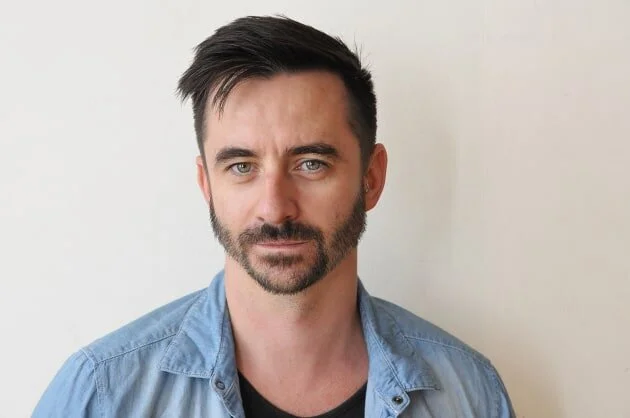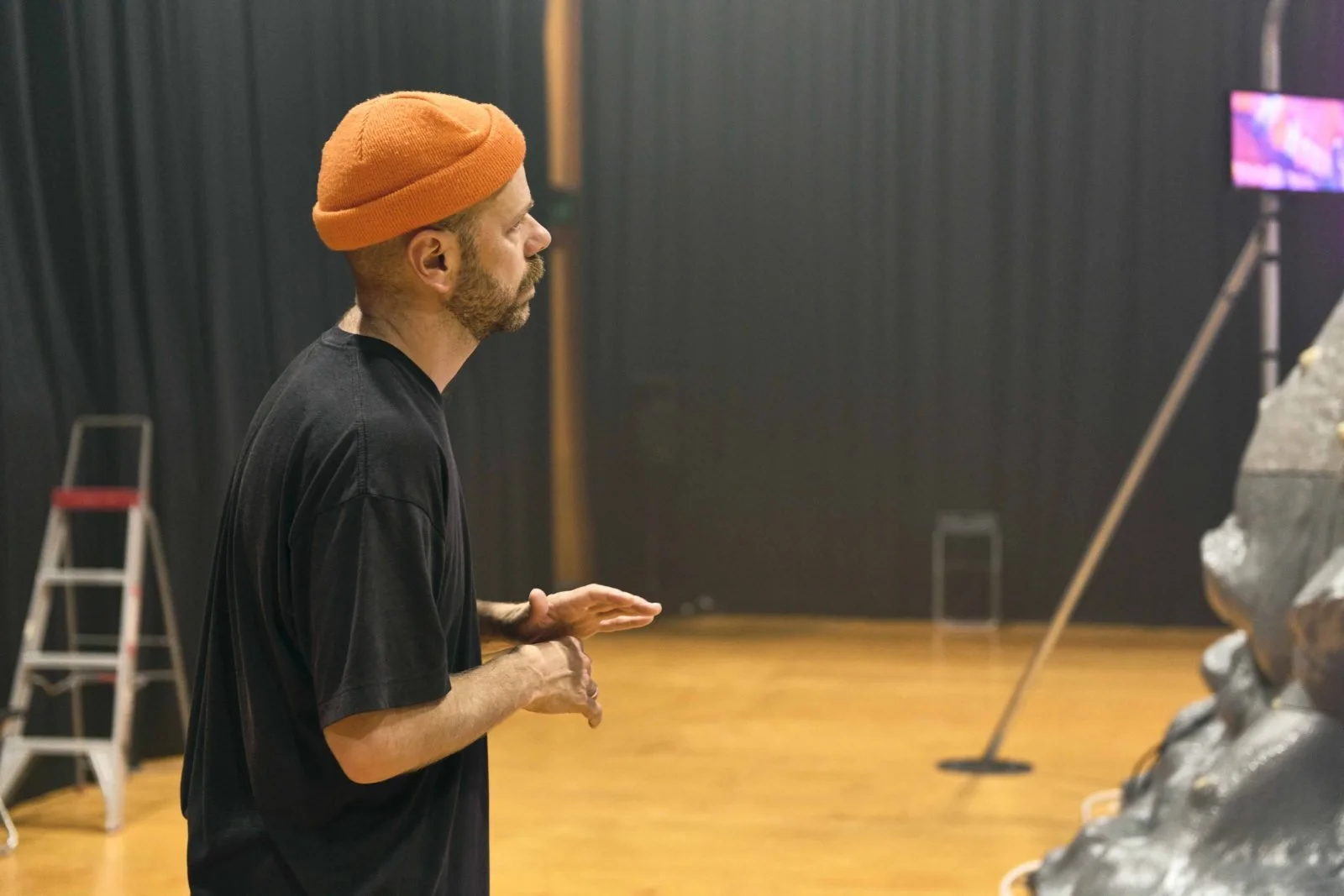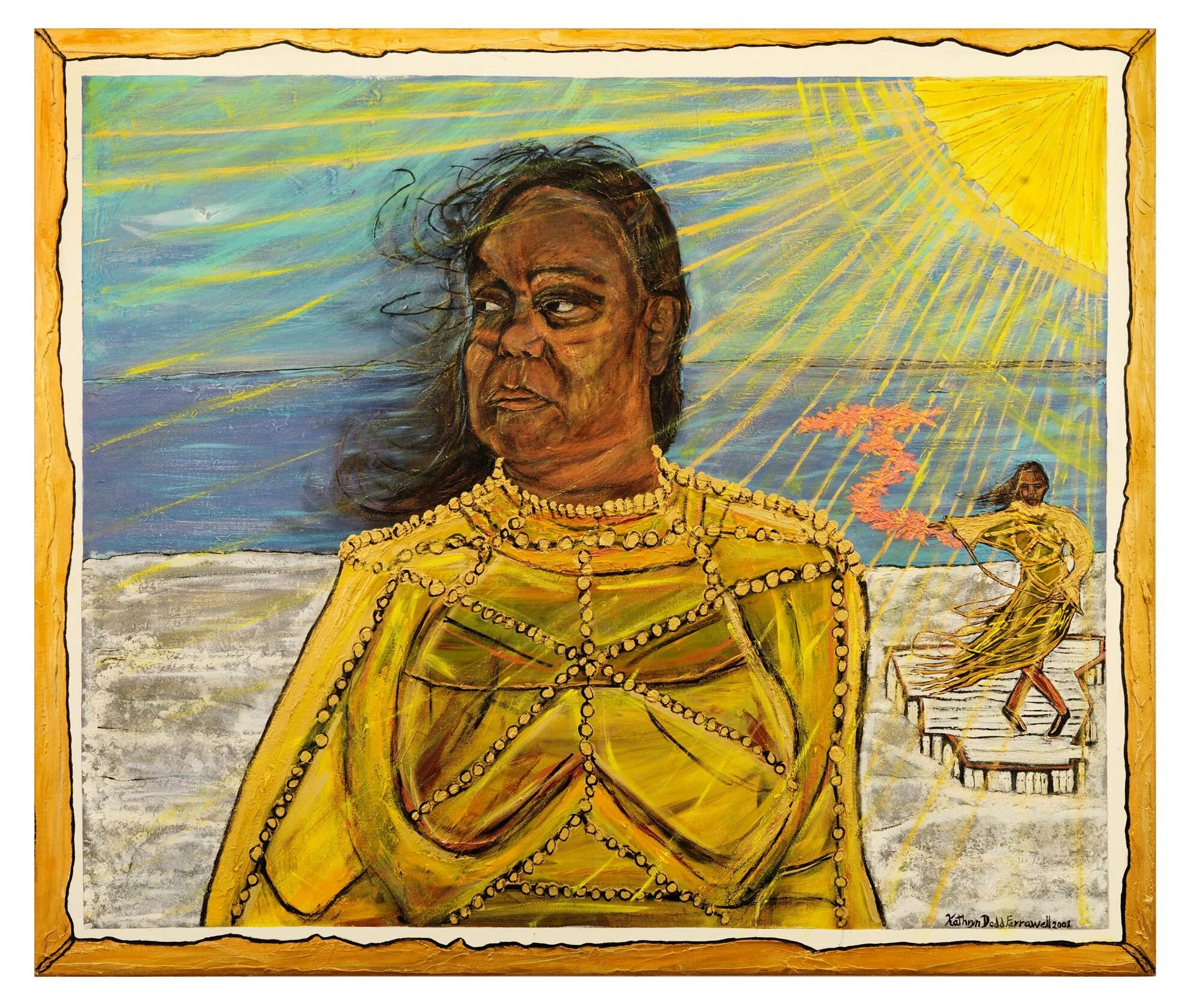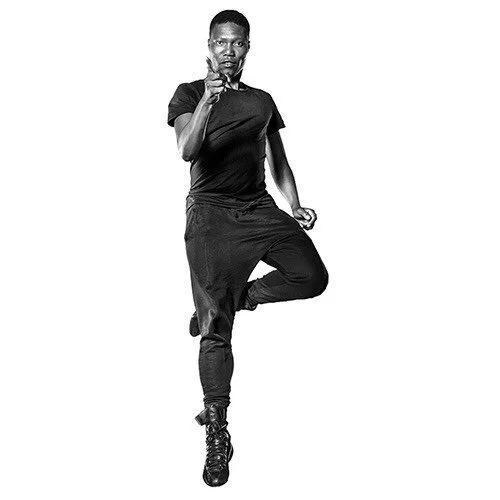This transcript is from an interview that was first published on 6th of June 2019. This transcript has been edited slightly to help with clarity, the audio of this episode and more information can be found here.
In this interview was conducted by Paige Carr, who was an Australian Youth Dance Festival, Youth Ambassadors.
Transcripts are a new initiative of Delving into Dance, seeking to make the rich audio archive more accessible to deaf audiences and for educators. These transcripts are paid for through the support of audiences and supported by the Victorian Government through Creative Victoria, and the Australian Government through the Australia Council, its arts funding and advisory body, as well as audience contributions. It would be wonderful to have your contribute to this initiative, You can contribute here.
Paige Carr: I started by asking when and where did dance start?
Adam Wheeler: I started dancing moons and moons ago. No, not really, actually, to be honest, I started at a late age. I was, well, I was close to 18 when I decided that I wanted to take on dance as a career. And really, like if I think about school productions, even in high school, in primary school, I was always, I was always dancing. Like I always loved dancing. I liked going to dances.
But it wasn't until the end of year 12 that I decided that this was something that I wanted to do for the rest of my life.
Paige Carr: So through your many years of dancing, did you feel like your knowledge of dance helped you succeed in your career?
Adam Wheeler: I think I've been incredibly lucky with the people that I've had around me as a young dancer. And then earlier in my career, like, I first started dancing with Stompin. They gave me the creative process at that age and it was less about whether I was flexible or whether I could point my feet good; the kind of romantic sentimental nature of it is actually really inspiring and was really inspiring because it was - I had so much confidence built in me that this was something that I really could do as a career; and then off we kind of went and I have done a whole bunch of things.
Paige Carr: Well, as soon as you finished year 12, did you have an exact game plan of what you were going to do? Or were you a bit…
Adam Wheeler: Actually, I did. Actually, I had a really - at the time, Stompin was directed by the founding director, a woman named Joe Richter, who's this incredible woman, and incredibly inspiring and she was the one that really planted the seed for me that this could be something I could do as a career. And, and she said to me, she said, ‘Adam, if you want this as a career, you could do it just said, but we need to put you into a ballet class, and then you need to go to the ACA, and then you can join Chunky Move.’ And I went, ‘okay, no worries. But what's Chunky Move?’ And she showed - she had literally handed me some VHS tapes… do you know what they are?
Paige Carr: Yes.
Adam Wheeler: Yeah, of course you do. Yeah, she had me these VHS tapes to show me some really kind of early Chunky Move works. One of them being Crumbled and Corrupted. And it blew my mind apart. This is something that I could do. And it' was just a physicality that Chunky offered, that was something that could be done as a dancer. And so from there that was the game plan. You know, I've started doing ballet. My first ballet classes were with a group of 10-year-old girls who were really good. They were really good at ballet and I was really bad. And I had my I wore a pair of tights that my mom owned. They were like velvet blue. And I wore my footy socks with my ballet shoes. And yeah, it was the end of the 90s and I was really going there. Actually, I reckon that fashion would look pretty good right now… but not really. Not back in 1999. So yeah, there was a game plan, you know, again, and I was incredibly fortunate. And credibly - I feel like I know, I worked my butt off. But I was lucky that actually happened. You know, I got to the VCA and then I was lucky enough to work with Chunky Move.
Paige Carr: Amazing. Um, do you wish you had changed anything or go on a different path when you were trying to pursue dance?
Adam Wheeler: Do you mean outside of dance or within dance? But to be honest, the decision to become a dancer was made. I'm going to use the word violently like it happened so quickly, that I never looked back on it. And I definitely at no point in my career have ever wished I did something else. And I sound like an old man saying this, but I wish I tried a little harder at VCA. I think I wish I was probably a better student. But I also think that part of not being a better student is part of the reason why I'm here today. I was one of those students that always had other projects on, I always wanted to do something else - there was always another thing to do. And I was always in Jenny's office asking for permission to go somewhere and to do something other than just be in class. And I didn't like doing class. It's just that I was so eager to learn so much and do that. I think the second year I was a bit naughty, I think I worked a little bit. And I don't recommend that to anyone at all. If you get to test your training, you work your butt off every single day. It is the one of the luckiest things you can ever do. But certainly look, you know, I don't regret anything. And I don't wish that I'd gone down any other path. Because I think that what I get to do is incredibly amazing.
Paige Carr: Being a director, choreographer and educator of a youth company, obviously would mean that you would work closely with youth dancers, do you think that they can evolve dance into something different because of their age?
Adam Wheeler: Oh, good question. I am always, always, and I will be - I was even just teaching class last night with a bunch of young dancers and I'm incredibly amazed by how a young body, an uninformed body moves. You know, we strive as I'm sure you are yourself striving towards wanting to train professionally and become a professional dancer. And, I think often that we learn fundamentals and we learn techniques, and we find strategies to understand our bodies better, to become better dancers. But what a young body has is a rawness that can't be taught. And it's, you know you're like a band, like a baby, trying to find his feet. That kind of idiosyncratic behavior that's untrained, I find incredibly fascinating. To the other spectrum of that is when you see a mature age dancer who's been in their body for decades and decades, the way that the confidence in their body is something you can't teach. It's something that you learn and you gain over decades and decades of the form. But I think young people and young people's bodies; I've always found incredibly inspiring. And maybe because it when I was younger, when I started dancing, I was that kind of Bambi myself, you know, yeah, so I think the young people these days, as well, are so informed. So their voice is, can be and is being heard more than more than 20 years ago when I was a kid. And that will evolve the art form. And then the art form, actually merely just becomes a vessel for how you as a young artists, and the next generation can pursue a greater future, which I can't encourage you all enough to do.
Paige Carr: I find you a great influence in there. As you have succeeded so much, and your energy that you give towards people who you may not even know is just so welcoming, and makes everyone happy. Do you have an influence that keeps you in the dance still going? Or is it just yourself in that? Pushing the dance that keeps you going?
Adam Wheeler: First of all, thank you very much for your lovely words. You can get me, I'm tearing up here in Tasmania - behind anyone is influence from others. Like I would be completely kidding myself if I thought that was just solely me that pushes myself forward any day, every day. Like, as I said earlier, I've had incredibly fascinating, intelligent, passionate, dedicated teachers and choreographers and artists influence me over the years. And they still influence me today. Yeah, I'm incredibly encouraged - like I even see young, young people protesting about climate change, or being at the January 26, Invasion Day march and seeing people being so passionate about wanting to see change and wanting to see things shift, that encourages me, you know. I find them really, I find that really inspiring and passionate. And then actually like, yeah, on a geeky level, like I'm going to share with you a little information, an inside secret that watching like, like Star Trek Next Generation, because I like watching Captain Picard, and how he leads. That's so embarrassing. I'm telling you that but it's true. So I find him inspiring as a leader. And actually even more kind of like pop culture at the moment. I've been watching a little bit of Brooklyn Nine, Nine and being inspired by their captain. So I think influence can come from anywhere. Yeah, I love watching dance works. And I love working with dances that inspire me and encouraged me to continue striving forward to what I wanted. What I would like to do with my career and what I want to offer that the industry, but also it can be pop culture, and it can be deadly. And it can be anything that can inspire you. And so I'm happy to tell you my Star Trek inspirations.
Paige Carr: Awesome. And what do you feel is a big topic in everyday life that can only be talked about or explored through dance?
Adam Wheeler: That can only be explored by dance?
Paige Carr: Or talked about?
Adam Wheeler: At the moment, it kind of feels like the worlds trying to tear itself apart a little bit. I think that there are more borders and ideas of right and left and centralist and division between race and culture and identity. And, I think that actually what dance offers us is connectivity. And if we're an audience member watching someone dance on stage, we connect to that body in a way words can't describe. Or when you're dancing with someone on stage, do you have that connection with them as well? And I think that is the beautiful thing about our art form. Say aside from theatre, or visual arts, sculpture, music, and that. It is about how bodies interconnect spirits, our bodies share exchange energy. So I think that is one thing that is a current topic that dance only, well, it can hit it to the deeper level.
Paige Carr: Yes. Great. And also going on that question, do you think dance can provide certain things that speaking cannot?
Adam Wheeler: All of those things I just said?
Yeah, I think language - like language and text, fascinating across any language. Yeah, of course, any language. But I think the moving body language is something that's universal. I was just on tour in Mexico, where I was with Spanish, Mexican - Spanish is the first speaking language. And I don't speak Spanish at all. But often, I'd find myself in conversations that were about body language and miming and expression. And they weren't so much about the words I was saying, but actually the way that I was saying them. And I think that is a really beautiful thing that dance does, that it is universal and can cross all boundaries.
Paige Carr: Do you feel like dance allows you to do certain things in the real world that maybe you wouldn't be able to do if it wasn't for dance?
Adam Wheeler: Absolutely, well, yeah, I think I'm in an incredible position where I get to come up with project ideas that connect me with different people around the world. And I am. I feel like dance, particularly with what I'm doing at the moment, allows me to strike conversations about how we connect with our indigenous culture, how we exist within privilege, just how complex and in a sense ,insensitive the world is right now. And how we can kind of find our way through what you're in. One of my favorite street artists is a French guy named JR, and He always talks about how you can't change the world, that you can start the conversation. And I think that's a really - I feel like I'd kind of leave this a little bit of a mantra for me of the ongoing like, how can I make work harder when I bring people together that will allow both conversations to begin? So yeah, dance lets me connect, let's dance, let's reconnect with the world at such a deep level that I can't imagine any other industry or platform allowing that to happen.
Paige Carr: And for those emerging artists wanting to know, what are some things you wish you had known when you started your career?
Adam Wheeler: I think it's a dangerous question. Because I think sometimes it's good not to know everything. But I think as I said earlier, that although I knew being in the VCA was an incredibly lucky situation; I wish I tried a bit harder. I think that it's at no point ever to take it for granted. That what you're doing it, it is incredibly special, it is incredibly important. And when you succeed, celebrate that, that success. But always be striving for more, and be as open as possible to everything. You may think that you want to be the most die hard, experimental, contemporary artist, and by all means, go for it. But don't shut yourself out to the rest of the world because the world is big and it's complex; it's got so much to offer. And you could surprise yourself where the most grandest of inspiration could come from.
Paige Carr: Do you think that if you didn't know certain things in your career, you’d effectively learnt them by now?
Adam Wheeler: I dunno Yeah, I struggle with this - not struggle, I tackle this kind of idea often of how much is in my own control and how much is pre-planned. And it either stresses me out, but like to play with kind of the romantic side of it, a little bit of it is in my control. And maybe some of it isn't that I was always destined to move back to Launceston and be the artistic director of Tasdance. Maybe I wasn't, this is near like, last year, I was very happy in Melbourne. Yeah, I love Yellow Wheel and I miss Yellow Wheel very much. I was really enjoying my job at Transit. And, then this job popped up. And I kind of looked at the rehearsal director I was working with and I said, I think to do this, I think I have to go for it. I think I've said this forever, that you have, you have to work hard, you always have to work as hard as you can. Don't take any day as as a write off. And make sure you give yourself rest time. Rest times very important. But if you want something, go for it wholeheartedly. Strive for it as much as you can. And something will happen. But know that - how old are you now?
Paige Carr: 15 turning 16
Adam Wheeler: So it’ll be interesting for you to think about what it is you want to do with your career now. And then in 10 years, and then even in just 10 years time, see whether what you've done or what you're doing - whether your current 15 year old self would have been able to comprehend that. Because I would nearly guarantee that you cannot, that you potentially can’t comprehend the amazing things that you can do in your career. And that's amazing, that's such an amazing idea. And this is the conversation I have with colleagues often that when I was when I was 15 there's no way I could comprehend what I've done in my career and what I'm doing in my career. So that's, that exciting to me.
Paige Carr : I always think it's crazy for you and my director Katie McCarthy to think of how much you have done. Because since I started wanting to maybe have a professional career, like at around 14, to where I am now and the 15 turning 16 - I feel like I've done so much. And every now and again, I just go, ‘oh yeah, I forgot I did that show and I just think it's crazy how you have this whole bunch of experiences can lead up to that one little thing.
Adam Wheeler: Yeah. So imagine what the next 10 years is going to look like. Imagine what the next 20 years is going to look like. Rah, you know, like it's just, but that just fills me with such, it's scary. But it’s enthralling, and it is so exciting. If it was all planned out, or you if knew what was going to happen, maybe the secret of life is that. You know, we you don't know what's around the corner. You don't know what's ahead of you like, if you think about the idea of friendship, but that, at 15 years old, there are a whole bunch of friends that you haven't even met yet. That's amazing. That could be and probably will be some of the best friends you'll have in your entire life. That's amazing.
Paige Carr: Yeah, I totally agree. It's quite scary. And I think it's, but my friends tend to think it's crazy how sometimes there might just be that one person out there that you haven't even met who you can end up spending the rest of your life with this crazy. Think like how my parents even met, just coincidence. And just magically happen to be in the same place at the same time. It's crazy.
Adam Wheeler: It's crazy, right? And it's the same with your career. So that's why I think it's nice to have to strive and have goals and let the goals be like it - I'm kind of contradicting myself a little bit, because I - when I was your age, when I was 18, I had such a clear goal of getting to Chunky Move. But actually now I know, I tell any young person that the goal, the goal is to have a career.
The goal is have a career in dance, because you can't specify any greater than that. Because you don't know what's around the corner. And if you do specify too much, maybe you might miss out on either. No, yeah, I like that and that's so great. And it's the same for me like this is a really new project and a new idea. And hopefully, I’ve still got a good couple of decades left in me of making dance works and creating projects and who knows, who's around the corner. And that's a really wonderful, exciting and an inspiring thing, I reckon.
Paige Carr: And on that topic of exciting things, I guess, you being an artistic director at the moment, are you pretty excited with what you're doing? What is exciting you in dance at the moment, you know, the way you move all those sorts of things.
Adam Wheeler: They're totally; I think in Australia, there's been a real changing of the guard. I'm one of the pool of a number of new artistic directors that are running major organizations around the country. And I think that's really exciting. I think it's a real interesting big community, these dance projects that are really inclusive and celebrate how beautifully individual we can be in a society and a community and encourage across cultural connections. Yeah, I think these are really fantastic things. Down here, particularly in Tazzy, you’ve got Tasdance, I was sent to work with some really fantastic First Nation artists down here, which I'm really, really incredibly excited about. And so I think the thirst for new, the thirst for new collaborations and connections and ways that we can make dance. I think it's really exciting. Really exciting.
Paige Carr: Yes. And for you to travel to all those places, do you think that Australian contemporary dance or just dance in general is missing out on anything that you have seen anywhere else?
Adam Wheeler: I think that dance; I think dance in Australia is to at times - trying to refine itself. It’s still trying to understand what it wants to achieve and I think Australia is trying to do that right now. And like an art form, all art form will often reflect the current society that it exists in. And that's not saying the rest of the world has got themselves sorted out, because clearly they don't. But I think that the more that we can see, the more that people are thirsty about traveling and experiencing new ideas and connecting with different artists and collaborators, the more that we can be informed and yet, often the world will kind of mock Australia a little bit for being a bit behind the trends. But yeah, but I'd encourage, encourage any starting artist to seek for external, but also keep looking at deepening the internal and deepening what it is from within you that you want to express. Because at the end of the day it's you as the artist, as the dance is to the maker, the taste of the choreographer and we will find a way and some of the best advice that I ever got, as a young student, was make the dance that you want to watch. And I've stuck by that for most of my career. And I can, and it's been a few times, really only a couple of small times that I have not followed that mantra, and it was horrible, and I would never do it again.










